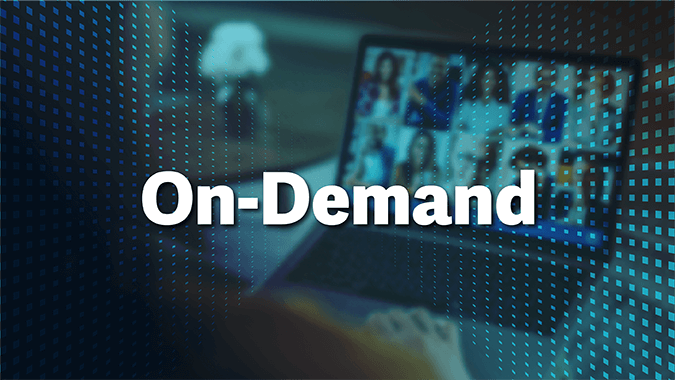
The Importance of Executive Coaching for HR Professionals
- Published
- Jun 8, 2022
- Share
Between ever-increasing challenges with recruiting, creating engaging remote work environments, and taking on new business functions and responsibilities, few corporate roles have evolved as much as human resources (“HR”). As businesses across all industries continue to experience these challenges, it’s important that we learn to evolve with them.
Working with executive coaches represents a unique opportunity that more HR leaders are taking advantage of to stay ahead of the curve professionally. Let’s dive into an overview of what HR professionals need to know about professional coaching, the unique skills they stand to gain from this insight, as well as how they can find the right partner for their own sets of challenges.
Why Executive Coaching?
In business, we’re constantly presented with new challenges that require innovative solutions to overcome. While a consultant may dive into the issue and offer a direct answer, an executive coach promotes awareness of new ways of thinking, helping clients become strategic problem solvers.
Whether it’s for high-ranking business executives or emerging employees with high potential, coaching is a tool that has been leveraged by business leaders at all levels for many years. It’s a great medium for those not only looking to grow in their roles but to improve both motivation and productivity.
An executive coach serves as a great sounding board to encourage both innovation and developing new ways of thinking—for even the most seasoned professionals. Consider this, many professional golfers, despite already being the best in the world at what they do, continue to work with coaches throughout their careers. By serving as strategic partners, coaches enable players to gain better self-awareness of their movements and thoughts, allowing players to improve their games and grow professionally.
Why Does Working with a Coach Offer a Strong Opportunity for HR Leaders?
As new responsibilities pile up and resources continue to decrease, many HR leaders are left feeling like they are on an island. In fact, the HR technology platform Workvio reports that only 26% of HR professionals say they have the right resources to do their jobs. By working with a great executive coach, they can effectively test their assumptions to find innovative solutions to new business problems.
While the core responsibilities for HR professionals have evolved these past few years, so have soft skills. Professionals need both skills to grow as leaders and have an impact on their organizations. Working with an executive coach is a great way to both learn and develop these soft skills, which HR pros are leveraging to advance in their careers.
Here are a few specific skills that can help HR professionals become stronger leaders within their organizations:
Listen with Empathy
No longer are HR leaders simply responsible for payroll, internal processes or administering benefits. They now need to also serve as active listeners and sometimes even consolers to their teams.
Employees are feeling more stress from never-before-experienced pressures outside of business, whether it be a turbulent economy or coming out of a global pandemic. Coaches can help HR professionals learn how to better understand employees in this work environment and help them solve challenges related to the feelings they have.
Connect the Analytical and People Sides of Business
All successful businesses are built on both people and numbers. For many, HR may be seen as a role more involved on the people side of business. However, the practice has become increasingly augmented by data and analytics in recent years. As pressures for innovation continue to grow, HR professionals need to be able to analyze the past to be strategic about the future. Working with a coach helps HR professionals not only think in a more analytical way, but it better combines both the data and human sides of business to find better solutions for their organizations.
Know the Business and Learn to Adapt
Due to a slew of hiring challenges across all industries, namely the Great Resignation, both recruiting and retention have become high-visibility challenges, often reaching the top levels of business. For C-level executives, these challenges hold similar priorities to revenue growth or product innovation. As such, HR leaders are seeing increased opportunities to work within the C-suite.
Increasingly, positions such as chief human resources officer or chief people officer are popping up in businesses of all structures and sizes. Because of this new opportunity, HR leaders need to both know and understand the language and operational aspects of business. Executive coaches often already work with members of the C-suite, so they serve as an incredible resource for HR leaders looking to fine tune their business awareness and acumen.
Build Tomorrow’s Leaders
A soft skill that has become incredibly important for HR leaders is the ability to train and develop other leaders throughout their organizations. This is often in the form of identifying high-potential individuals, connecting employees with training and mentoring, or even serving as coaches themselves. Working with a professional coach can help HR professionals better flesh out their own thoughts and processes when it comes to talent and improving their own coaching skills.
Where Can HR Professionals Get Started with Executive Coaching?
The reality is executive coaching is not a one-size-fits-all solution for HR professionals. Different styles of coaches cater to different kinds of people, so you’ll need to consider both what your goals are and what makes a great coach.
It’s important to work with a coaching professional who is certified in their area. Like HR, there are various credentials coaches pursue to improve their own skills. This specialization helps coaches better understand the situation and tailor solutions to a client’s needs.
It’s beneficial to work with a coach who may operate across various industries outside of yours. Talking to a coaching professional who has diverse experience can help you grow and identify new HR solutions and ideas from viewpoints you may have otherwise not considered.
Therefore, when looking for a coach, always interview multiple candidates. If a candidate is not the right fit, continue to look and obtain references from colleagues to connect with the right person.
As mentioned, HR leaders have seen extensive changes over the past few years that have led to increases in both stress levels and pressure to bring new ideas to the table. Working with a talented, experienced executive coach presents incredible opportunities to both grow professionally and bring new, innovative HR solutions to an organization.
Contact EisnerAmper
If you have any questions, we'd like to hear from you.
Receive the latest business insights, analysis, and perspectives from EisnerAmper professionals.









